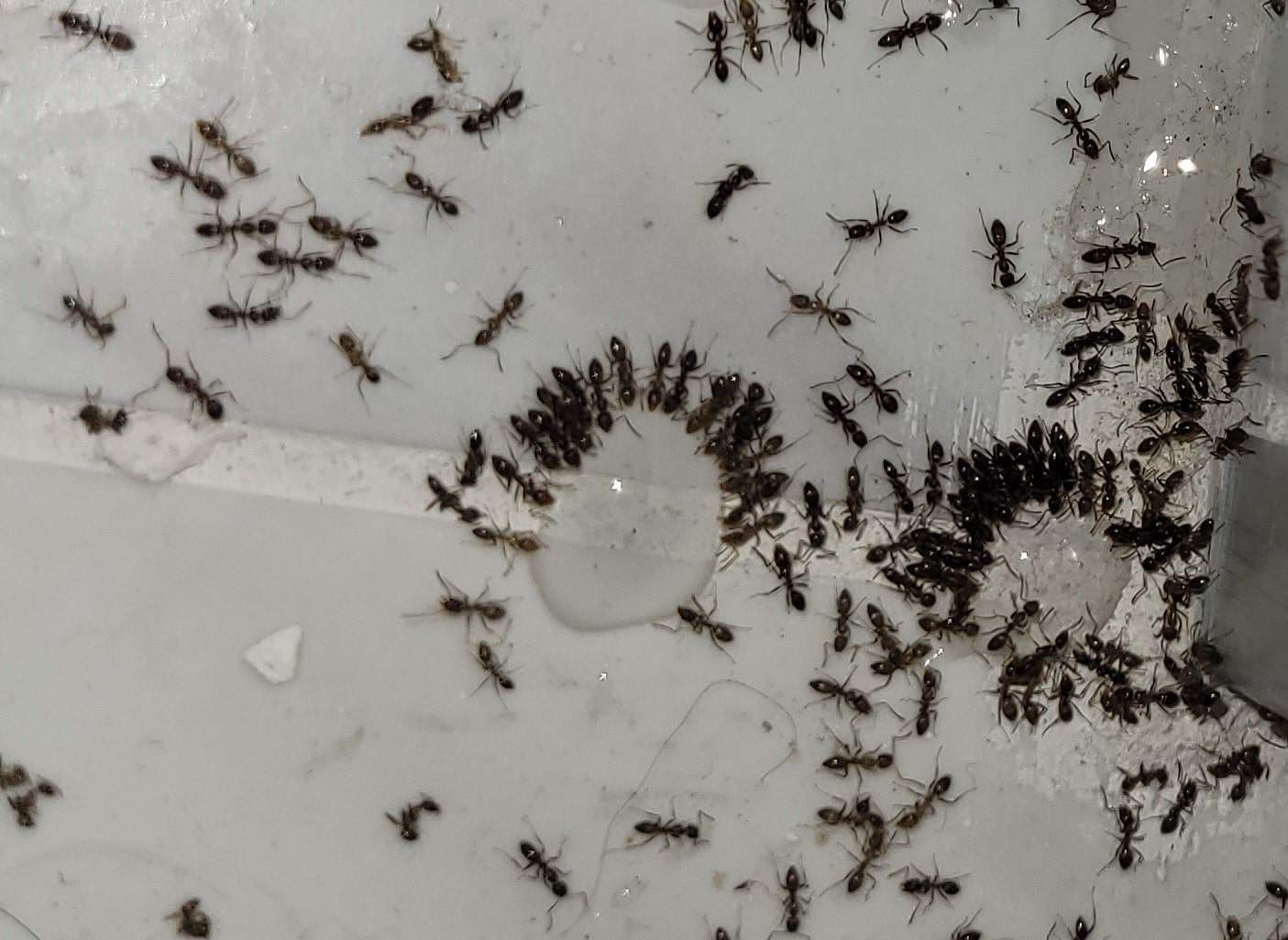Sugar Ants: Argentine Ants in Georgia
Have you ever heard about those tiny invaders that sneak into our homes, making us scream and reach for the bug spray? Well, in, Georgia, there’s a little sugar feeding ant causing big problems: the Argentine ant, people also call it a sugar ant. Let’s dive into the fascinating world of these tiny critters and learn why they’re causing a buzz in the Peach State.
First off, Argentine ants are not your ordinary ants. They might be small, but they’re mighty! These ants are originally from South America, but they’ve made their way to places like Georgia, and they’re here to stay. One of the reasons they’re so successful is because they’re great at working together. They form massive colonies, sometimes even joining forces with other nearby colonies to create super colonies.
What is a Sugar Ant?
Argentine ants do not sting or bite humans. They live in back yards within landscape features that provide favorable living conditions such as pinestraw, decorotive bark, potted plants, walkways, or stones
Ants Work Together
Now, you might be wondering, “What’s the big deal about ants hanging out together?” Well, when Argentine ants team up, they become a force to be reckoned with. They’re experts at gathering food and protecting their territory. But here’s the catch: while they’re busy doing their ant thing, they often push out other ant species. That means fewer kinds of ants and more Argentine ants, which can upset the balance of the ecosystem.
But the invasion doesn’t stop there. Argentine ants are also notorious for sneaking into our homes. They’re attracted to sugary foods and water, so they’ll happily march into kitchens and pantries in search of snacks. Once they find a cozy spot, they’ll set up camp and invite all their ant buddies to join them. Before you know it, you’ve got an ant party in your house!
How Do I Control Ants in my Home?
So, what can we do to deal with these pesky invaders? Well, one way is to make sure our homes are ant-proof. That means keeping food sealed tight, fixing any leaks or drips, and sealing up cracks and openings where ants can sneak in. It’s also essential to clean up crumbs and spills right away to avoid attracting unwanted guests.
But here’s the thing: getting rid of Argentine ants isn’t easy. Remember how I mentioned they’re great at working together? That teamwork makes them challenging to control. Even if you manage to get rid of one colony, there might be another one nearby ready to take its place. That’s why it’s crucial to be patient and persistent when dealing with ant infestations and to have ongoing pest protection plan from a local pest control company.
Using Pesticides to Kill Sugar Feeding Ants
Some people resort to using spray pesticides to get rid of Argentine ants, but that can have its drawbacks. Pesticides can harm other insects, animals, and even people if not used correctly. Plus, Argentine ants are pretty good at developing resistance to pesticides over time, making them even harder to control. Pesticides can also cause the colonies to bud or spilt into more colonies. So instead of fighting one colony you may be fighting two or three.
Using Baits to Kill Sugar Feeding Ants
Instead of relying solely on spray pesticides, it’s essential to explore other options, like baits or natural repellents. Baits contain a tasty treat laced with ant poison, which the ants carry back to their colony, eventually wiping them out. Natural repellents like cinnamon or vinegar can also help keep ants at bay without harming the environment. Baits may take longer to work but in the end you are killing the colony and not just a few.
In the end, dealing with Argentine ants in Georgia requires a combination of patience, prevention, and smart pest control tactics. By understanding these tiny invaders and their habits, we can work together to keep our homes and ecosystems in balance. So, the next time you spot a line of ants marching across your kitchen counter, remember: knowledge is power, even when it comes in tiny, six-legged packages!




